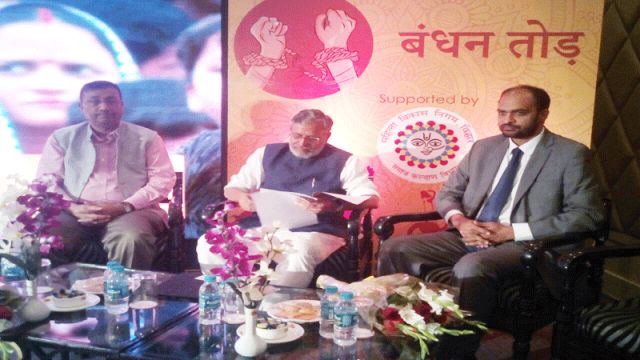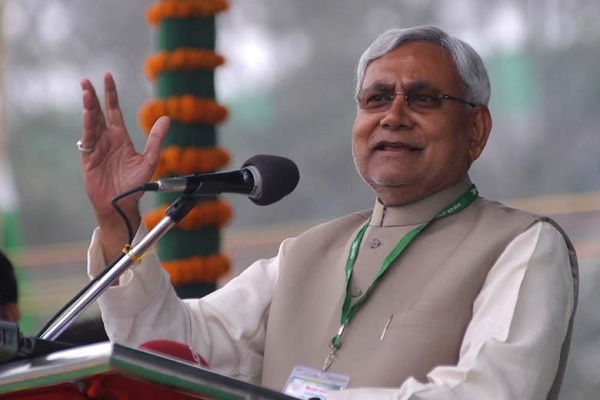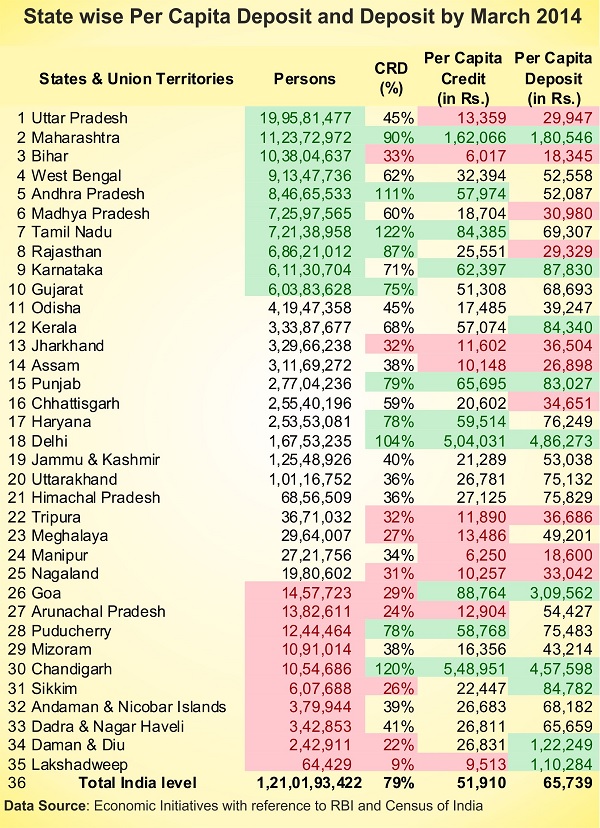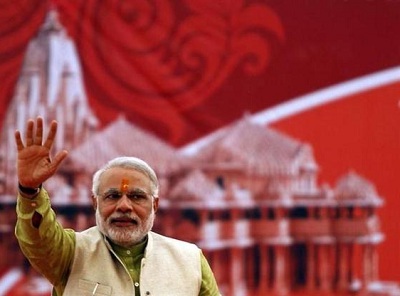
by admin | May 25, 2021 | Markets, News, Politics, Technology
 By Imran Khan,
By Imran Khan,
Patna : In a unique initiative, Gender Alliance Bihar, a collective effort of over 270 civil society organisations backed by the UN Population Fund, has come up with a mobile application to fight the rampant social evil of child marriage in the state.
Launched by Deputy Chief Minister Sushil Kumar Modi, the “Bandhan Tod” app will try to create awareness on resisting child marriage and will also provide round-the-clock help to adolescent girls saying no to the practice in the form of an SOS button.
The Gender Alliance is an initiative of the United Nations Population Fund (UNFPA) and was started to bring together civil societies, activists, academicians, researchers, media, and others on a common platform to advocate gender equality.
“Use of latest technology like a mobile app is probably the first of its kind in the country to fight child marriage,” Nadeem Noor, head of UNFPA in Bihar, told IANS.
He said the app offers innovative features that will give girls the confidence to stand up against marriage before they are 18, the legal marriagable age for girls in India, adding its unveiling ahead of the formal launch of the statewide campaign against child marriage by Chief Minister Nitish Kumar on Mahatma Gandhi’s birthday (October 2) was a positive development.
“If the state government includes the app in its campaign, it will help us popularise it down to the village level with the wide network of thousands of women self-help groups active in rural Bihar,” he said.
Bandhan Tod is part of Gender Alliance’s strategy to support the state government’s efforts to end child marriage and dowry.
“It is a rare effort of civil society, and the first of its kind in Bihar, to support the state government’s commitment to end child marriage and dowry,” Gender Alliance convener Swapan Mazumdar said.
The app was also lauded by N. Vijayalakshmi, Managing Director, Women Development Corporation.
It will be available on Google Play store and anyone can register on it with their details — name, age, block, district and mobile number. Mobikwik, a digital payment gateway, will provide incentive to users who download it.
If the SOS button is pressed, the registered mobile number and other details of the user will be sent to the Gender Alliance monitoring cell and civil society organisations, who will contact the user to get details and then alert the local authorities for action.
Given the socio-economic and cultural context within which child marriage takes place, the campaign will aim to directly and indirectly reach out to girls at the village and panchayat levels in all the blocks and districts of Bihar through technology.
Gender Alliance stressed on the dire need and urgency to match this commitment with coordinated strategies, action and resources to end child marriages as well as early marriages in Bihar.
It has also extended support of the hundreds of civil society organisations, that are part of the initiative, to the state government in its fight against child marriage.
“Bandhan Tod mobile app will complement the Bihar government’s campaign against child marriage,” said Prashanti Tiwary, Manager of Gender Alliance.
Since its inception last year, Gender Alliance has focused its work on gender equity. Keeping this in consideration, it has also identified child marriage as one of the four priority issues as it is not only a violation of human rights, but a grave threat to the lives, health and development of girls.
Child marriage is rampant in Bihar, particularly in rural areas, despite laws against it. It is a big social problem among Dalits, OBCs and Muslims due to lower literacy rates and other factors, including poverty.
Till a few years ago, Bihar accounted for 69 per cent of child marriages of total marriages. But the latest National Family Health Survey-4 revealed that the figure has declined in Bihar in the last 10 years due to increase of education among girls.
Gender Alliance will soon come out with a ground reality report on the adolescent girls’ social, education and health status in every block and district.
“This in-depth report is likely to provide ready-made data for the government to use for different scheme implementations to achieve its goals in a time-bound manner,” Mazumdar said.
Gender Alliance has announced the Bandhan Tod award for journalism for mainstreaming gender in media and awarded adolescent girls with Bandhan Tod champion title to recognise their brave role in the fight against child marriage.
(Imran Khan can be contacted at imran.k@ians.in)
—IANS

by admin | May 25, 2021 | Economy, News
 Patna : (IANS) A day ahead of a liquor ban from April 1 in Bihar, authorities destroyed more than 13 lakh bottles of liquor worth over Rs.3 crore here on Thursday, officials said
Patna : (IANS) A day ahead of a liquor ban from April 1 in Bihar, authorities destroyed more than 13 lakh bottles of liquor worth over Rs.3 crore here on Thursday, officials said
“We used three JCB machines to destroy 13.32 lakh bottles of countrymade and spiced liquor following Patna district magistrate Sanjay Agrawal’s orders,” said an excise department official.
According to officials posted in the Bihar Police headquarters here, all police officials concerned have been directed to strictly enforce the liquor ban from Friday onwards.
The Bihar assembly on Wednesday unanimously passed an amendment bill providing for death penalty for people found violating the ban on manufacture of and trade in illicit liquor in the event of a hooch tragedy.
All members of both the Bihar assembly and the legislative council also unanimously adopted a resolution that they will not consume liquor. It is a first for Bihar.
Bihar Chief Minister Nitish Kumar, who announced the alcohol ban from April 1 during campaigning for the 2015 assembly elections, was upbeat after the Bihar Excise (Amendment) Bill, 2016, was passed on Wednesday.
Bihar Excise and Prohibition Minister Abdul Jalil Mastan said the manufacture and sale of countrymade and spiced liquor would be banned in the first phase, followed by Indian-made foreign liquor later this year.

by admin | May 25, 2021 | News
 New Delhi: (IANS) Two days after the BJP was routed in Bihar, the party’s old guard including L.K. Advani on Tuesday took on Prime Minister Narendra Modi and BJP president Amit Shah, demanding “a thorough review” of the debacle but said it can’t be done by those who were responsible.
New Delhi: (IANS) Two days after the BJP was routed in Bihar, the party’s old guard including L.K. Advani on Tuesday took on Prime Minister Narendra Modi and BJP president Amit Shah, demanding “a thorough review” of the debacle but said it can’t be done by those who were responsible.
The BJP, in a statement, later said it was “fortunate” to have been led by leaders like Atal Bihari Vajpayee and Advani for decades, and welcomed any guidance and suggestion from the party’s “seniors” on victories and defeats.
In a virtual challenge to Modi’s leadership who became the prime minister in May 2014, former party presidents Advani and Murli Manohar Joshi, former union minister Yashwant Sinha and former Himachal Pradesh chief minister Shanta Kumar said the Bihar defeat showed that the BJP had learnt nothing from its crushing defeat by the AAP in Delhi in February.
“To say that everyone is responsible for the defeat in Bihar is to ensure that no one is held responsible,” said the brief hard-hitting statement signed by Sinha on behalf of the four leaders.
“It shows that those who would have appropriated credit if the party had won are bent on shrugging off responsibility for the disastrous showing in Bihar,” it said, in a clear reference to Modi and Shah who were the BJP’s faces vis-a-vis the Grand Alliance of Chief Minister Nitish Kumar.
The statement followed a meeting of the leaders at Advani’s residence and then at Joshi’s where former central minister Arun Shourie, who has blamed Modi, Shah and Finance Minister Arun Jaitley for the Bihar defeat, was also present along with former BJP ideologue K.N. Govindacharya.
“The result of the Bihar election shows that no lesson was learnt from the fiasco in Delhi,” the statement said.
Advani and the others said that a review of the Bihar rout — where the Bharatiya Janata Party won just 53 of the 243 assembly seats — “must not be done by the very persons who have managed and who have been responsible for the campaigning in Bihar”.
In an obvious reference to Modi and his confidant Shah, it said “a thorough review must be done of the reasons for the defeat as well as the way the party is being forced to kowtow to a handful and how its consensual character has been destroyed”.
The statement said the principal reason for the party’s defeat in Bihar “is how the party has been emasculated in the last year”.
The statement came hours after Home Minister Rajnath Singh — a la Jaitley on Monday — said that Modi and RSS chief Mohan Bhagwat were not to blame for the disaster in Bihar where the JD-U, RJD and Congress won a whopping 178 seats.
“The prime minister can’t be blamed for the defeat in Bihar,” Rajnath Singh said. “It is the BJP’s and NDA’s electoral loss, not the PM’s as a leader.”
Jaitley had expressed similar views a day earlier, adding that there was no question of removing Shah as the BJP president because he had led the party to victories in other states after the Lok Sabha battle.
But voices of discontent have been steadily mounting in the BJP since the Bihar results came out on Sunday.
On Tuesday, Bhola Singh became the fifth BJP MP to blame Modi for the defeat.
The Begusarai MP said the rampant use of “unparliamentary language” by Modi and other party leaders during the election campaign harmed the BJP, leading to its defeat.
“There was no logic to raise issues such as beef and that firecrackers would be burst in Pakistan if the BJP loses,” he said. “All these resulted in our defeat.”
The other four MPs who have found fault with Modi and Shah, directly or indicrectly, for the Bihar rout are Shatrughan Sinha (Patna Saheb), Hukum Deo Narain Yadav (Madhubani), R.K. Singh (Ara) and Ashwani Kumar Choubey (Buxar).
Advani, credited with building the BJP since it was left with just two Lok Sabha seats in 1984, has been mostly sidelined since Modi took charge of the party’s campaign committee and, later, the government.
But those affected by Modi’s style of functioning continue to look upon him as their mentor.
There was no formal reaction from the party to the old guard, who enjoyed senior posts before Modi took the national stage.
But BJP spokesman Nalin Kohli told CNN-IBN that a review of the Bihar result was already on and the party would respond to Advani and others if needed.
In a statement issued by former BJP presidents Rajnath Singh, Venkaiah Naidu and Nitin Gadkari, the party said: “We have read the statement issued by some senior members of the party. Obviously, all party members are concerned with the results of the assembly elections in Bihar.”
Coming out in support of Prime Minister Narendra Modi, Rajnath Singh, Naidu and Gadkari said the party won the Lok Sabha elections last year under Modi’s leadership.
“Thereafter, the party had success in assembly elections of Jharkhand, Haryana, Maharashtra and Jammu and Kashmir. Recently, we won the local elections in Karnataka, Maharashtra, Andamans, Kerala and Assam.”
Stating that the “results of Delhi and Bihar have been adverse”, the BJP said its parliamentary board had a detailed discussion on Monday on the Bihar results.
“The party will discuss this matter on various other forums including with senior leaders and attempt to overcome the shortcomings that led to the adverse verdict in Bihar,” it said.
Stating that the Party “has been very fortunate” to have been led by Vajpayee and Advani for decades, it said “they had set a healthy precedent of the party collectively taking up responsibility for victories and defeats”.
“The party would certainly welcome any guidance and suggestion of our seniors in this regard,” the statement said.

by admin | May 25, 2021 | Banking, Economy, News, Opinions
By Syed Zahid Ahmad for Maeeshat
Considering higher attraction for voters in election manifestos of parties in state elections, it is required that the Election Commission of India should think about framing regulation to prevent political parties offering bribes through election Manifestos. Since political parties are not allowed to distribute materialistic offers to voters before polling, these parties feel privileged to extend attractive offers for public through election manifestos. It is a kind of futuristic bribes offered to voters without any cost to political parties.

If election commission is not serious to take any action over such manifestos where parties announce to distribute laptops, televisions, bicycles or two wheelers etc., its high time the voters should realize that if political parties promise to distribute such attractive materials after winning election; its cost would be ultimately paid by citizens of that state only, and not by the parties.
Voters must realize that the political parties who promise to distribute cycles, bikes, laptops, tablets and televisions after winning election are making fool of the public on the name of eradicating backwardness and poverty. These parties are really not serious about state development; rather going to exploit the citizens through awkward fiscal policies after winning elections. Voters must understand the economics behind such offers. It is needed to understand how the party if wins election fulfill such promises. Will the party pay from its own fund for fulfilling such promises? Obviously No!
Fulfilling such highly attractive promises will ultimately cost the public living in particular state. To fulfill such promise the state Government need fund for purchase of materials. To raise required funds, the Government will obviously increase tax revenues. Increasing tax revenues by state Government will ultimately add inflation and tax burden on public including entrepreneurs and consumers. The ugly tax structure would ultimately go to increase inflation and adverse conditions to attract fresh and abroad investors in the state. The ugly fiscal policy will push the state downward instead of increasing potential for state economic growth.
Now it is upon the public who consider the manifesto attractive to cast votes how they consider the economics of attractive promises in manifestos. If the voters react sensibly to such attractive promises, the parties would obviously become serious in planning for state development.
The statistics available at website of the Reserve bank of India reflects financial deprivation of Bihar as one of the reason for Bihar’s under development. Bihar being third top populated state in India after Utter Pradesh and Maharashtra deserves fair attention for inclusive growth of India. Ignoring Bihar would always led India fail in achieving the target of better growth rate. Considerably Bihar shares as much as 9% of Indian Population, thus deserves better treatment by sincere planners for the nation’s development.
Considering Bihar election, political parties should raise issue of the lowest per capita credit availed by Bihar. It may be noted that Bihar is getting merely Rs. 6,017 as per capita credit disbursed by Indian banks compared to Rs. 5,48,951 for people of Chandigarh and Rs. 5,04,031 for people living in Delhi. Credit Deposit Ratio for Bihar is merely 33% against national average of 79%.
It might be questioned why Credit Deposit ratio for states like Tamil Nadu, Andhra Pradesh, Chandigarh and Delhi is over 100%? People of Tamil Nadu received 122% credit of Deposits made in Banks whereas people of Bihar get just 33% of their Deposits as credits extended by Indian banks. Why political parties not find any reason for this deficit in finance as reason of Bihar’s backwardness compared to other states like Chadigarh, Delhi, Andhra Pradesh and Maharashtra.
Political parties should sincerely raise the point why the per capita credit availed by Bihar is just Rs. 6,017 compared to national average per capita credit of Rs. 51,910 extended by Indian scheduled commercial banks? Whoever be the economists behind these political parties, can anyone deny that without ensuring adequate supply of finance, we cannot raise Bihar’s growth potentials?
If any party is really serious to help poor people of Bihar, they should really think about promoting micro and smaller enterprises in Bihar. There is desired that political parties may announce launching of Micro Equity Fund for micro and smaller enterprises allowing them feel equality in financial sector compared to corporate who avail equity from stock markets. Such micro equity funds may allow micro and smaller enterprises boost their entrepreneurship; ultimately boosting manufacturing activities in the state.
The people of Bihar should ask the political parties to ensure that they avail what people of Bihar really deserve and the new Government should just keep on facilitating the people of Bihar develop their state.
He can be reached economicinitiatives@gmail.com

by admin | May 25, 2021 | Opinions

By Amitava Mukherjee
Roughly 32,000 new voters enrolled in each constituency for this year’s assembly election in Bihar may play a decisive role in determining the ultimate poll result. The presence of these new voters becomes important in the light of the fact that during the last two assembly elections in the state, the victory margins of many of the winning candidates ranged between 12,000 and 13,000 votes.
But there are plenty of ifs and buts before the state goes to the polls. The electoral behaviour of the Hindi-speaking states in the Indo-Gangetic plain is always influenced by caste factors and here, Chief Minister Nitish Kumar and Lalu Prasad Yadav, a former chief minister and one of the principal players of caste-based politics in India, have stolen a march by stitching up an alliance and announcing their respective share of seats. There is reason for the Bharatiya Janatta Party (BJP) to feel a bit rattled as it cannot field an equally powerful counter-combination of castes and, therefore, has fallen back on its slogan of “development” as can be understood from Prime Minister Narendra Modi’s announcement of a grant of Rs.1.25 lakh crore for Bihar.
But this slogan of “development”, together with a sense of “national perspective”, as described by the BJP, had enabled the constituents of the National Democratic Alliance (NDA) it leads to capture 31 seats out of 40 in Bihar during the 2014 parliamentary elections. The NDA’s combined vote-share was 38.8 percent while the BJP’s individual share in this stood at 29.86 percent. However, the vote share of the opposition parties consisting of the Janata Dal-United (JD-U), the Congress and the Rashtriya Janata Dal (RJD) combined was much more than that of the NDA. This is the source of worry for the BJP.
The BJP’s traditional vote-base consists of the Brahmins and the Baniyas of Indian society. Party veteran L.K. Advani first tried to broadbase it by his concept of a broader Hindutva. The BJP could successfully romp home in the last Lok Sabha elections in spite of its divorce from Nitish Kumar, who represented the other backward class (OBC) interests. This was because a significant number of OBC votes and even a slight amount of Muslim votes had swung towards the BJP. But this is unlikely to happen now.
This time, the BJP can safely count on 14 percent upper-caste votes, six percent Vaishya votes, around six percent votes that are likely to go to the Lok Janshakti Party of Ram Vilas Paswan and four percent votes of the Rashtriya Lok Samta Party of Upendra Kushwaha. Former chief minister Jitan Ram Manjhi, hailing from the Musahar caste and representing the interests of the ‘mahadalits’, can bring in another five to six percent votes. But this may not be enough for the BJP to secure a convincing victory.
Against this backdrop, the new voters have become important for the BJP as they may not have been bitten by the caste bug. But the BJP’s greatest worry should come from the Muslims, who constitute nearly 15 percent of the voters. For a long time since the 1990s, the RJD garnered most of their votes. Latest indications, however, are that they are again switching their loyalty to the Congress.
This will certainly give the JD-U-RJD-Congress combine extra advantage. In the 2014 parliamentary polls these parties together had received 45.6 percent votes. But for tilting the scales in their favour, both the combines are expected to rely heavily on the extremely backward castes (EBCs) who constitute nearly 24 percent of the Bihar populace. In 2014, 53 percent of this group had voted for the BJP. How they would cast their votes this time has become an important question.
In all probability, the JD-U will be able to retain its 16.4 percent vote base. The Congress is also expected to maintain its 8.56 percent share. About the RJD, however, there are some reasonable doubts. In 2014 it had received 20.46 percent votes. But this time there are two spoilsports – the Garib Janata Dal (Secular) of Sadhu Yadav and the Jana Adhikar Mancha of Pappu Yadav. Both are likely to cut into the RJD vote-share in some pockets. At the same time they have, till now, declared their support for Jitan Ram Manjhi – which may harm the JD-U a bit.
On the whole, the Bihar election result is likely to be a cliff-hanger – and the real test for Narendra Modi.
(Amitava Mukherjee is a senior journalist and commentator. The views expressed are personal. He can be contacted at amukherjee57@yahoo.com)







